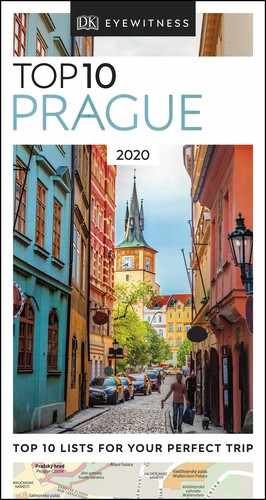
WENCESLAS SQUARE
This former medieval horse market began to be redeveloped in the 19th century, rapidly becoming the commercial hub of Prague. In 1848 it was renamed Wenceslas Square (Václavské náměstí) in honour of Bohemia’s patron saint. The majority of the buildings seen today date from the early 20th century, and their beautiful Art Nouveau façades illustrate how keenly this style was embraced by Czech architects of the time. The square has often been the scene of historic events, most recently in 1989, when large, jubilant crowds gathered here to celebrate the end of Communism.
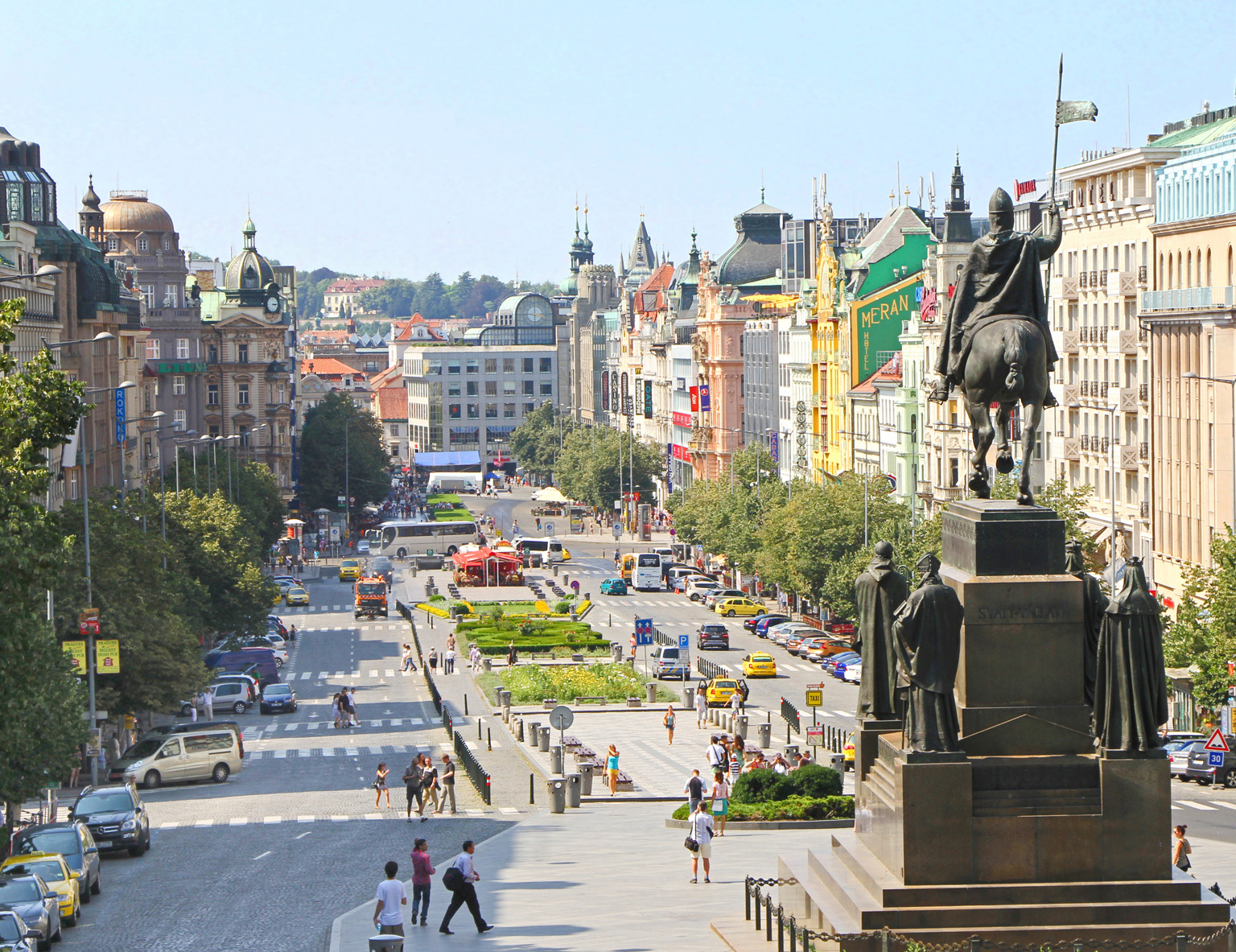
Wenceslas Square
NEED TO KNOW
![]() New Town
New Town
- Cafés line both sides of the lively square from top to bottom.
- Owing to the high volume of tourists, Wenceslas Square is where pickpockets are most active. Be especially wary at the square’s north end.

1. National Museum
Invading Warsaw Pact troops shelled the Neo-Renaissance building in 1968, mistaking it for the country’s parliament (you can still see the pockmarks). The small entry fee is worth it, if only to see the grand marble stairway and pantheon of Czech cultural figures (see National Museum).
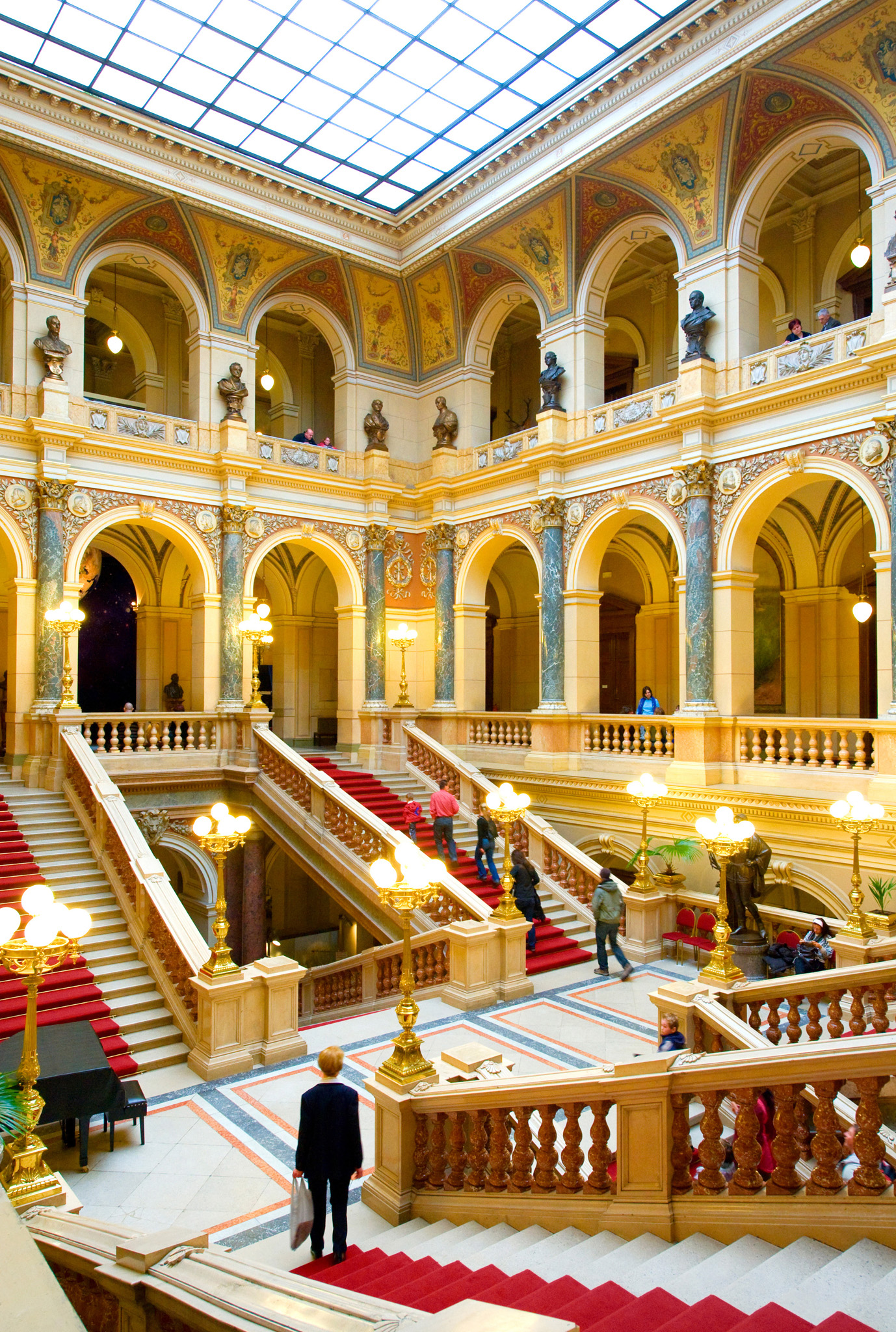
Grand stairway at the National Museum
2. St Wenceslas Statue
The Přemyslid prince sits astride a horse flanked by other Czech patrons in Josef Myslbek’s 1912 sculpture. The area “under the tail” is a traditional meeting place for locals.

St Wenceslas Statue
3. Communist Memorial
In front of St Wenceslas is a memorial to the victims of Communism, such as the two men who died protesting against the 1968 invasion.
4. Palác Lucerna
Václav Havel’s grandfather designed and built this building, now home to an art gallery, cinema, cafés, shops and a ballroom.
5. Palác Koruna
Built in 1912 in Geometric Modernist style, this “palace” held offices, homes and Turkish-style baths. The listed building now hosts the Koruna Palace shopping centre, which boasts several cafés and luxury stores.
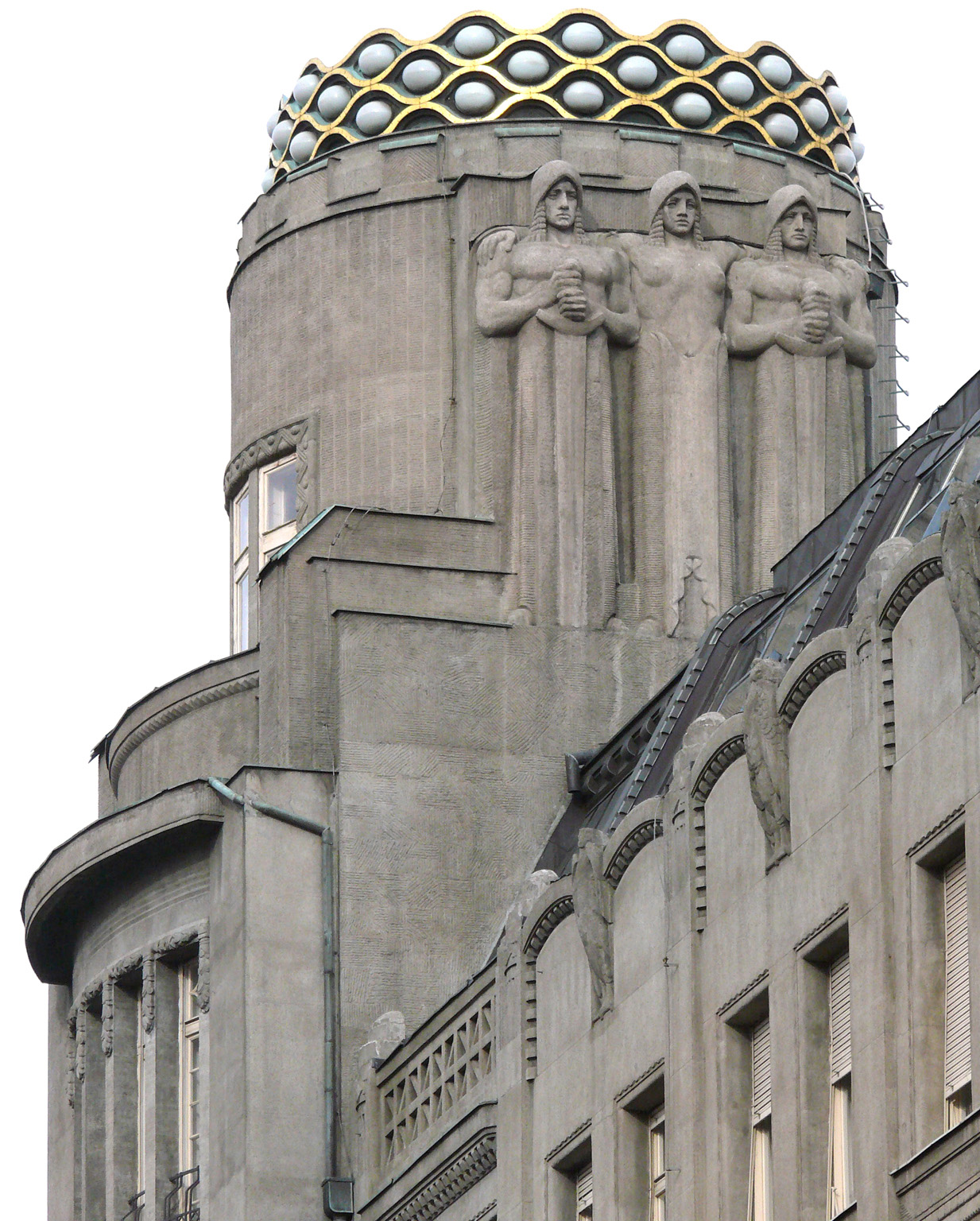
Palác Koruna
6. Grand Hotel Evropa
It’s gone to seed over the years, but the Art Nouveau building preserves its original façade and decor. Although it is closed for renovation until 2020, its architectural features can still be seen.
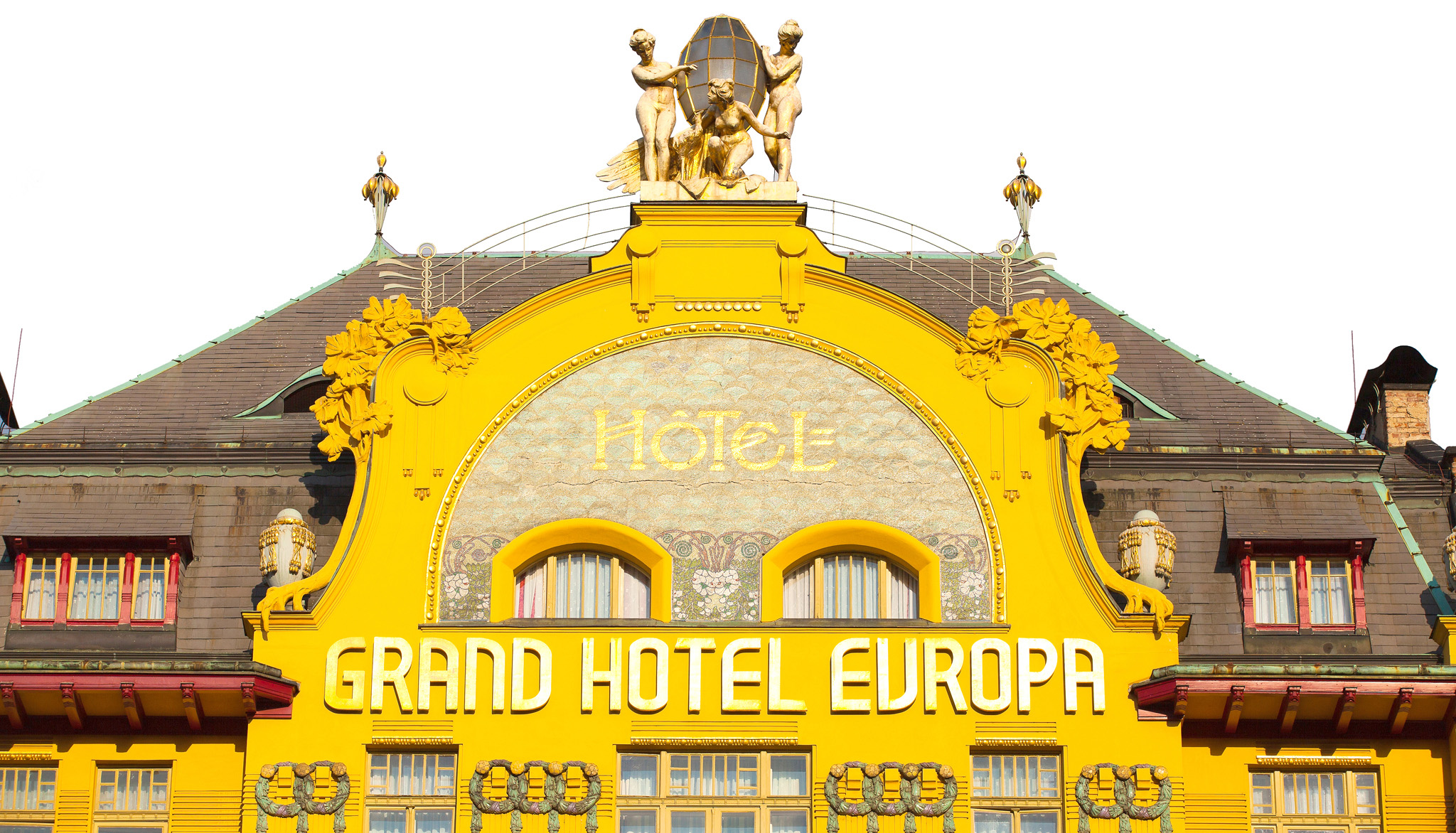
Façade of Grand Hotel Evropa
7. Upside-Down Statue
Hanging in the central passage of the Palác Lucerna is David Černý’s take on Czech patron saint Wenceslas.
8. Church of Our Lady of the Snows
Founded by Charles IV upon his coronation in 1347, this beautiful church was to have been more than 100 m (330 ft) long, but it was never completed.
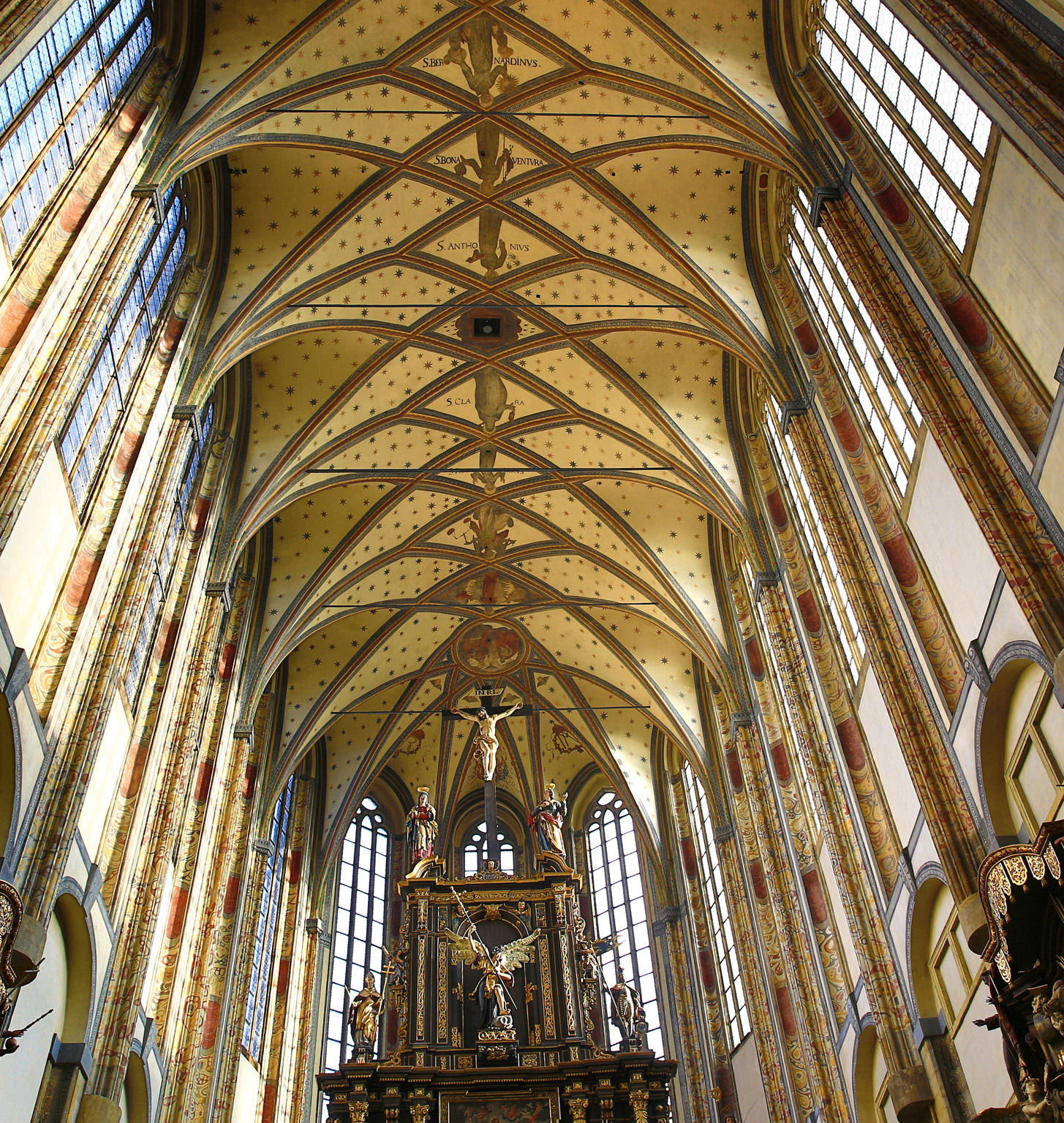
Vaulted ceiling, Church of Our Lady of the Snows
9. Franciscan Garden
A stone’s throw from the busy Wenceslas Square, this former monastery garden provides much-needed peace from the city bustle (see Franciscan Garden).

Franciscan Garden
10. Svobodné slovo Balcony
During the Velvet Revolution, Václav Havel addressed supporters from the balcony of the Svobodné slovo newspaper building. When the deposed Alexander Dubček joined him, the crowds knew that Communism was over.
HISTORIC DEMONSTRATIONS
Wenceslas Square saw its first demonstration in 1419 when Catholic reformer Jan Želivský led a procession to St Stephen’s Church. On 28 October 1918 the area witnessed Czechoslovak independence. In 1969, student Jan Palach set himself on fire here as a political protest against the Soviet occupation. It is still the scene of political protests today.
